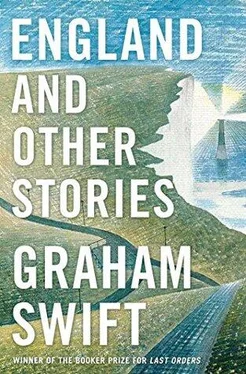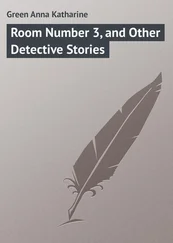It was the 25th of June. Two days later she got the telegram. ‘25th June. Of wounds.’ But it came as no surprise.
So she was a widow now. Was she the only one?
Three months later she met Duncan. Duncan Ross. Of all places, it was on Slough station. The train was late. They exchanged shy words. Then he actually paid for her to travel first class, as if it was his sudden flustered duty. He had to, you see, in his uniform. They sat together to Reading, where he had to change for Aldershot, and where she was going for an interview, as a maid.
He was in intelligence, which meant he couldn’t talk about it. So, how did she know? She didn’t say that, of course. She looked at him, at his brown moustache, perfectly demurely. She didn’t say, ‘So, it was a bit like shell shock then.’
And her own private joke to herself — something else she’d never say — was that he was in intelligence, but the intelligence was all hers. In intelligence, and based at home. Neither of them knew the war had just two months left. An officer, a newly made lieutenant, an educated child. And clearly — but never mind that, she’d cope with that — above her station.
But my people are well off, you know. .
Dear Duncan. In thirty years’ time they’d have lived through another war and he’d have been safely in intelligence again — rising to major. And they’d have had Joyce and Margaret, their darling girls, who not only lived through that war too, but cut a fine swathe through it, having a high old time. Girls! You could have said this was part of her intelligence too. Though she could hardly have insisted on it from Duncan. Only girls, please. But perhaps because she wanted it so much, it was what she got. Duncan obliged. And girls for grandchildren too.
It was agreed, on the platform at Reading, that they’d meet again. Going for the interview, she’d thought, was a little like Albert going to see the MO. Duncan and Lily. . It had a ring, like the name of a superior grocer’s. They managed in due course to scrape a whole day together, in Maidenhead, by the river. It was meeting halfway.
Maidenhead! Well, it was where her new life began, her second one, her real one.
‘You have appetites, Lily.’
But she’d never tell even Duncan, who had the good sense — the intelligence — not to probe for details. Not even the date. Often there wasn’t any date. Often there wasn’t anything.
The 25th of June: she’d have to live through it every year.
Just the bare facts: she’d been married before, then widowed. She wasn’t the only one. It had all taken less than a year. His name was Albert. Just the little extra morsel, the gently smiling decoy: ‘Always Albert. He never liked to be called Bert.’
HE STOOD BY the opened kitchen drawer. It was a warm April afternoon. He’d come home from school meaning to take the knife at some point before the following morning and hadn’t thought that his best chance might be straight away. The clock on the microwave said 4.25. His mother was in her bedroom with her boyfriend Wes. He could hear them, they were loud enough. Boyfriend wasn’t really the right word, but it was a word that would do. Either they hadn’t heard him and didn’t know he was there, or they’d heard him and didn’t care. By the sink were the scattered cartons they’d been eating from. They’d been eating KFCs and fries with ketchup, just like kids who’d come home from school themselves.
They could do it without making a noise, possibly. But he understood that the noises went with doing it. He’d been in this situation before, of having to be around and just listen, but not in the situation of taking the knife.
The brothers had told him that he should get a knife. He knew what they were saying. If you want to move on to the next stage, if you want to stay with us. So he’d thought at once of the kitchen drawer. It was the easiest way, the simplest way. ‘Here is a knife.’ He wasn’t going to say that it was really his mum’s knife. It didn’t matter, it was a knife.
But perhaps it did matter. Perhaps it mattered very much that it was his mum’s knife.
The noises from the other room only made it easier to take it. They were almost like a permission. So why should he hesitate? Why shouldn’t he just go ahead? He understood that at this moment, though he was only twelve, he had about as much power in the world as he would ever have. He understood it almost painfully now. At twelve you could not be held responsible, even if you were. To everything you could say: So? So what are you going to do about it? And at twelve you were still small enough not to be picked on. People would think twice.
The brothers knew this. That’s why it was worth their while to take on twelve-year-olds, to string them along and train them up, like dogs. But then there’d come the moment when they’d say, ‘Do you really want to be one of us?’
He knew — he knew it especially now — that this place wasn’t his home. If he belonged anywhere now it was with the brothers. Only with them could he have any respect. If you had nothing else, then you had to have respect.
His mother might have said to Wes, ‘No, not now. Danny will be back from school any second.’ But then just caved in and not cared.
He’d meant to take the knife — it wasn’t even stealing, to take a knife from your own kitchen drawer — but he hadn’t thought he’d be pushed into doing it as soon as he got home. And he hadn’t thought of all the other thoughts that would rush into his head — almost, so it seemed, into his hand — just before he did so. What it means to hold a knife, in a certain way, in your hand.
At twelve years old he knew he was fearless, or just about. He knew he could look anyone, or almost anyone, in the eyes and they’d give in first. So? So what are you going to do? The brothers perhaps recognised this quality in him.
So: a knife in your hand ought to make you even more fearless. But if you could be fearless without it, why have it? This was the real point. At twelve years old he understood that his fearlessness, rapidly acquired, might soon be over. He would not have the untouchability of being twelve.
He’d been in this same situation before — without the issue of the knife. In a little while Wes would emerge, perhaps buckling his belt. Wes had a belt with a big shiny buckle, part of which was shaped like a skull. But he wasn’t afraid of Wes. Wes wasn’t his enemy, he wasn’t his friend, and he’d just want to clear off anyway, but first they’d have to look at each other. Each time they’d done this before Wes had lost. At twelve years old he was good at looking, even looking at people like Wes who were more than twice his size and twice his age. There’d be a point when Wes’s eyes would flicker, as if to say, ‘So what are you looking at?’ Once Wes had actually said that. Now he didn’t say anything. There’d be just the flicker, then he’d clear off.
Wes was afraid of him. He was twelve, but Wes was afraid of him. Wes had a skull on the buckle of his belt and shoulders that bulged through his T-shirt, but Wes was afraid of him.
And now when Wes emerged he could go a step further. What was a knife for? He might not only look at Wes, but as he did so he might be holding a knife, pointing a knife. He’d never thought about this till moments ago. He’d never thought about it as he was coming home from school. Then there’d be an even bigger flicker in Wes’s eyes, not just a flicker, and he’d clear off even more quickly. And not come back.
Or he could go a step further still. This thought made his hand sweat. He could take the knife and just go into the other room and stick it in Wes’s back. Wes’s back might very probably be turned and bare. This is what a knife enabled you to do. The thought made him freeze.
Читать дальше












